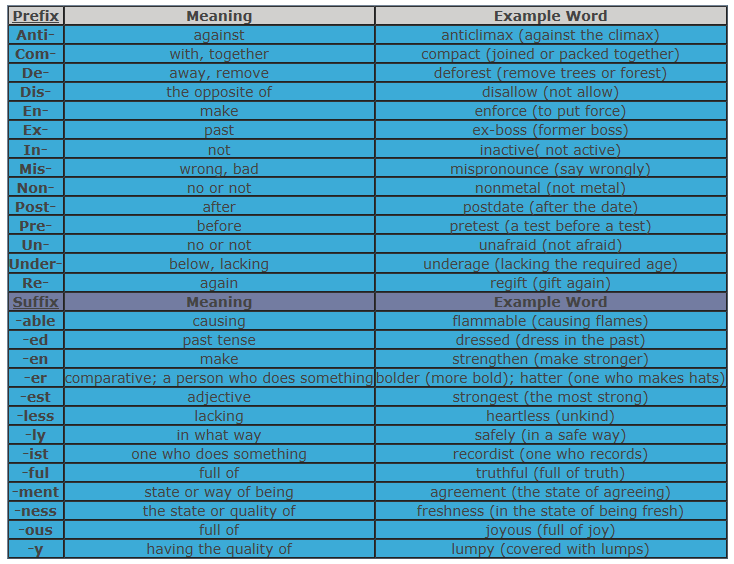
Have you ever pondered the words we utilize daily and the meanings that lie beneath their surfaces? In the labyrinth of the English language, affixes play a pivotal role, acting as the scaffolding for myriad terms. Specifically, the prefixes that imply absence, negation, or being devoid of something can prove both fascinating and challenging to master. This exploration into prefixes and roots reveals the nuances of language and how a single affix can transform our understanding of a word. So, what does it mean to convey ‘without’? Let us traverse this intricate landscape of language.
Affixes, encompassing prefixes and suffixes, are essential components in the realm of morphology—the study of the structure of words. When one considers prefixes that signify absence or negation, a handful of common options come to mind. Notable among these are ‘a-‘, ‘an-‘, ‘non-‘, and ‘de-‘. Understanding these will facilitate a more profound comprehension of their usage and implications in various contexts.
The prefix ‘a-‘ is deeply rooted in the Greek language, where it denotes negation or absence. For example, the word ‘asexual’ implies a lack of sexual reproduction. The prefix ‘a-‘ can be daunting, especially when one encounters its usage in abstract terms. It transforms familiar roots into concepts that evoke wonder or curiosity. Can a word like ‘amoral’, which signifies an absence of moral principles, provoke contemplation on the complexities of ethics within human behavior?
Another common prefix, ‘an-‘, is employed similarly. Originating from the same Greek roots, it acts as a counterpart to ‘a-‘. For example, ‘anemia’ describes a condition marked by a lack of red blood cells or hemoglobin. Such terms pose inquiries into health and biology, encouraging us to explore their implications further. The challenge arises here: how often do we consider the fundamental components that shape our understanding of such terms?
In addition to these prefixes, the term ‘non-‘ is another noteworthy contender. Spanning various contexts, ‘non-‘ designates negation or absence of a quality. The word ‘nonexistent’ illustrates this effectively. Here, one might reflect on the existential musings that emerge from a term that denotes the absence of existence itself. How does one grapple with the very idea of something that is not? This prefix pushes us to ponder deeper philosophical questions.
Furthermore, the prefix ‘de-‘ conveys another facet of absence or negation. It often implies removal or reversal, as seen in words like ‘dehydrate’, which denotes the process of removing water. The concept of dehydration transcends physical conditions and nudges us toward understanding the essential components of life. One might ask: what implications do these transformations have on our daily experiences?
In conjunction with these prefixes, it is crucial to integrate the study of roots. Roots serve as the core of words and carry the central meaning. For instance, the Latin root ‘ject’ means ‘to throw,’ leading to a multitude of affixed words like ‘eject’, ‘project’, and ‘inject’. By examining roots and their connections to various prefixes, one can effectively decode the vast tapestry of language.
Consider the suffixes that contribute to the overall meaning of a word. Suffixes such as ‘-less’ also denote the absence of something. A word like ‘fearless’ embodies courage, presenting a boldness that denotes a lack of fear. Herein lies another challenge: how might our understanding of emotions shift when we dissect the prefixes and suffixes that characterize them? This permissive exploration allows for a rethinking of how language shapes our perceptions.
Another intriguing root is ‘nihil’, from Latin, meaning ‘nothing’. This root pairs seamlessly with various prefixes to create compelling terms that resonate deeply with themes of absence and nullity. For example, ‘annihilate’ highlights the total obliteration of existence. What philosophical conversations does the intersection of language and nothingness inspire?
As you delve into the world of affixes, an entire landscape of meanings awaits exploration. Each prefix, each root, introduces layers of understanding that can clarify or obscure meaning, challenging us to be vigilant in our use of language. With the prefixes ‘a-‘, ‘an-‘, ‘non-‘, ‘de-‘, and the connective essence of roots, we have the building blocks for a more nuanced understanding of the language.
Moreover, the significance of comprehending these elements extends beyond mere linguistics. In literature, art, and scholarship, language constructs realities that reflect human thought and culture. By familiarizing ourselves with the interplay of affixes and roots, we prepare ourselves to tackle the complexities of communication and expression.
In conclusion, embracing the prefixes that convey ‘without’ along with their roots enriches our appreciation for language. This exploration not only empowers us to decipher existing words but also inspires us to invent new combinations that articulate our thoughts clearly. As we navigate the intricacies of affixes, we are challenged—to consider our expressions, to reflect on the weight of our words, and ultimately, to understand the profound depths of language itself.
